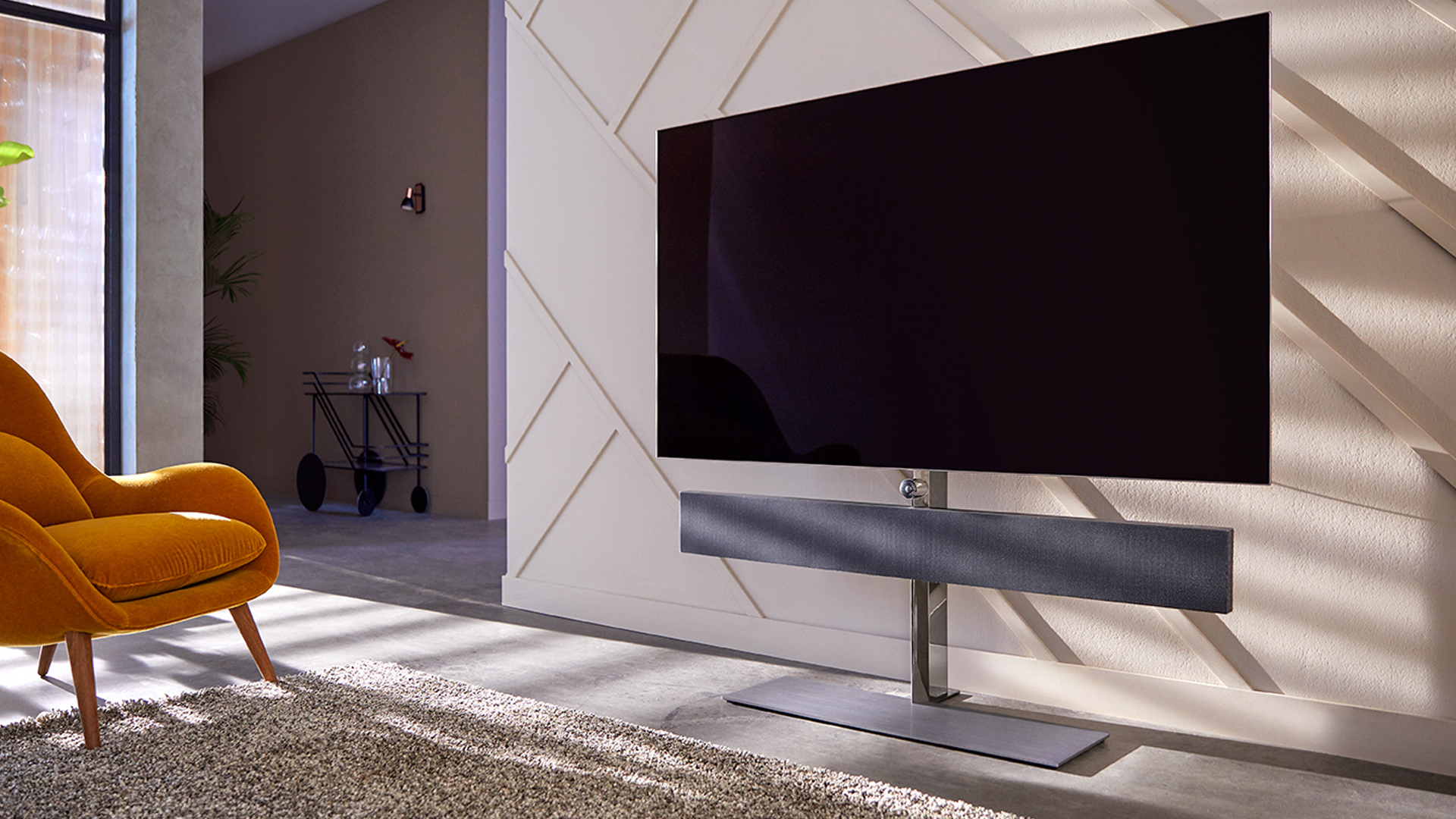TechRadar Verdict
One of the finest integrated TV soundbars, and a lush OLED panel, make this a designer 4K screen for truly discerning TV buyers.
Pros
- +
Dolby Vision and HDR10+
- +
Bower & Wilkins soundbar
- +
Four-sided Ambilight
Cons
- -
More audiophile than home cinema
- -
No Freeview Play
- -
Game performance could be better
Why you can trust TechRadar
Philips has taken its partnership with lauded Hi-Fi company Bowers & Wilkins to the next level with the OLED984 (also known as the OLED+984).
Bowers & Wilkins had already proven their audio chops last year’s OLED903, but here it’s been given free rein to produce the best sounding TV audio system it can. The result could make you rethink what you want your next television to be.
Long story short: the OLED984 is a brilliant, bold and uncompromising audio visual performer, and one of the best TVs we’ve seen this year. At a £4,499 price tag, too, you'd certainly hope so – though if you're after something less steep, you may want to check out the best Black Friday TV deals we've drummed up from across every major TV retailer.
Design
The OLED984 comes in one size only, with a 65-inch screen to truly fill your living room. Screen, stand and soundbar are essentially a single construction, with a unified design that stands 1.33m tall.
While it’s theoretically possible to wall-mount the OLED984, the all-in-one design will likely look better on a counter than the wall – though, of course, you’re free to do as you like.
The panel itself locks onto the pedestal stand, which in turn holds the suspended torpedo shape of the soundbar. In traditional Bowers & Wilkins style, too, a decoupled tweeter glowers like a cyclops between the two.
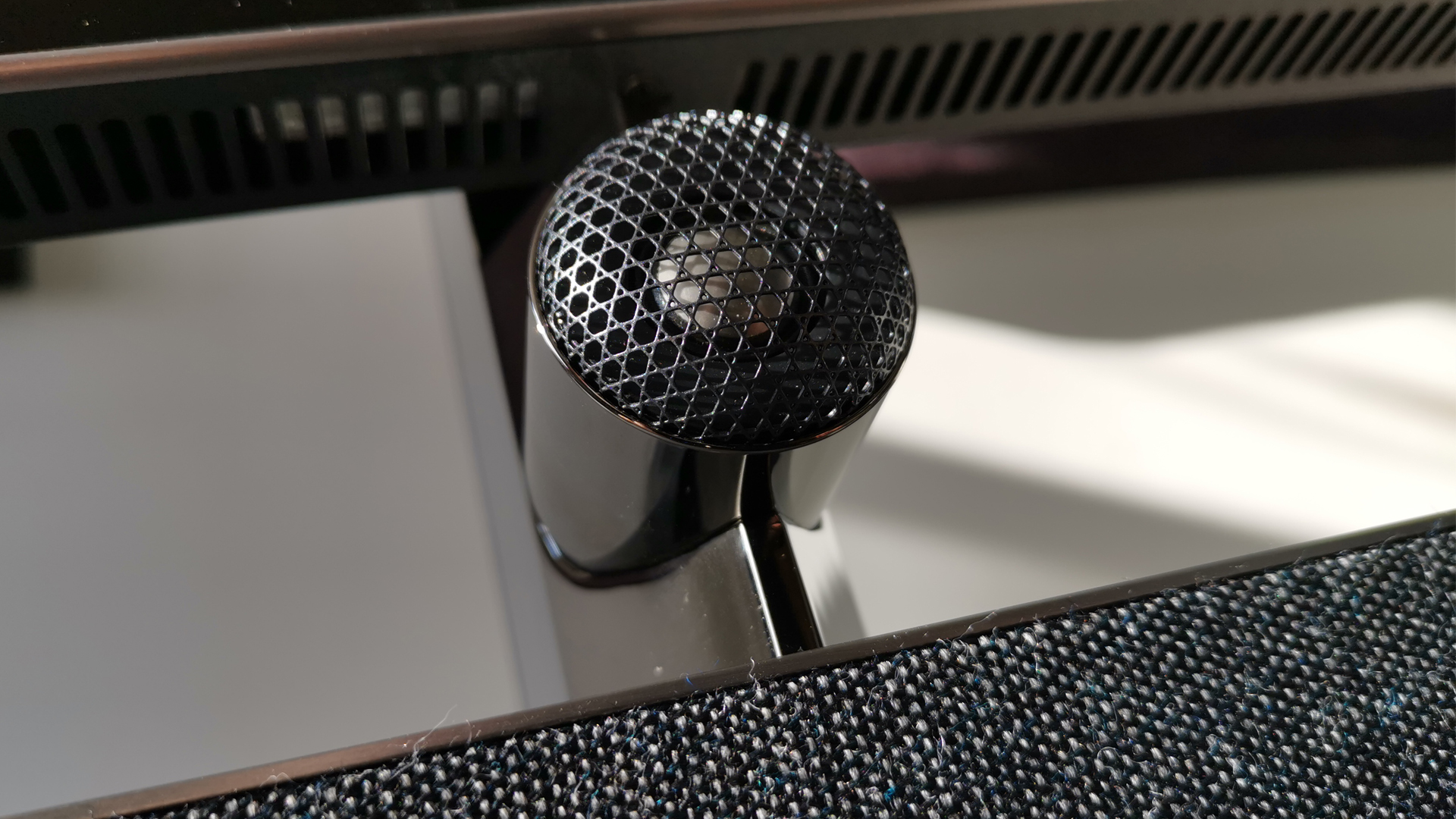
It’s a design affectation made famous by B&W’s high-end 700 and 800 series loudspeakers, but there’s good practical reasons to adopt the same approach here, as it helps tether dialogue to the screen.
The three-channel soundbar sports distinct left, centre, and right drivers, each comprising separate high-frequency and mid-bass drivers.
While the decoupled tweeter is allocated to the centre channel, left and rights have their tweeters angled wde, in order to broaden the soundstage.
The midbass woofers use technology first deployed in B&W’s M1 satellite speaker, and are wrapped in acoustically-transparent Kvadrat cloth (trust us, it helps), with an overall power output of 3 x 20 Watts
AV connectivity holds fewer surprises. There are four 4K HDMI inputs, three USB ports, an optical digital audio output, and component AV input via an adapter. Wireless support covers Wi-Fi and Bluetooth, but there’s Ethernet if you need a physical cable too.
As we expect from Philips, Ambilight, the brand’s patented room mood lighting tech, is on-board, here in a fully encompassing four-sided configuration. Philips has mainly been supplying Ambilight three-sided in recent times, but this particular TV and stand combo lends itself well to the full halo treatment.
As per usual, the Ambilight light show can mimic onscreen action, throw flat colour against the wall (including an ISF white bias light), sync to music, or replicate national flags.
Design TL;DR: The imposing design of the OLED984 may dominate your living space, but the wraparound Ambilight and Kvadrat-clad soundbar warrant the attention.
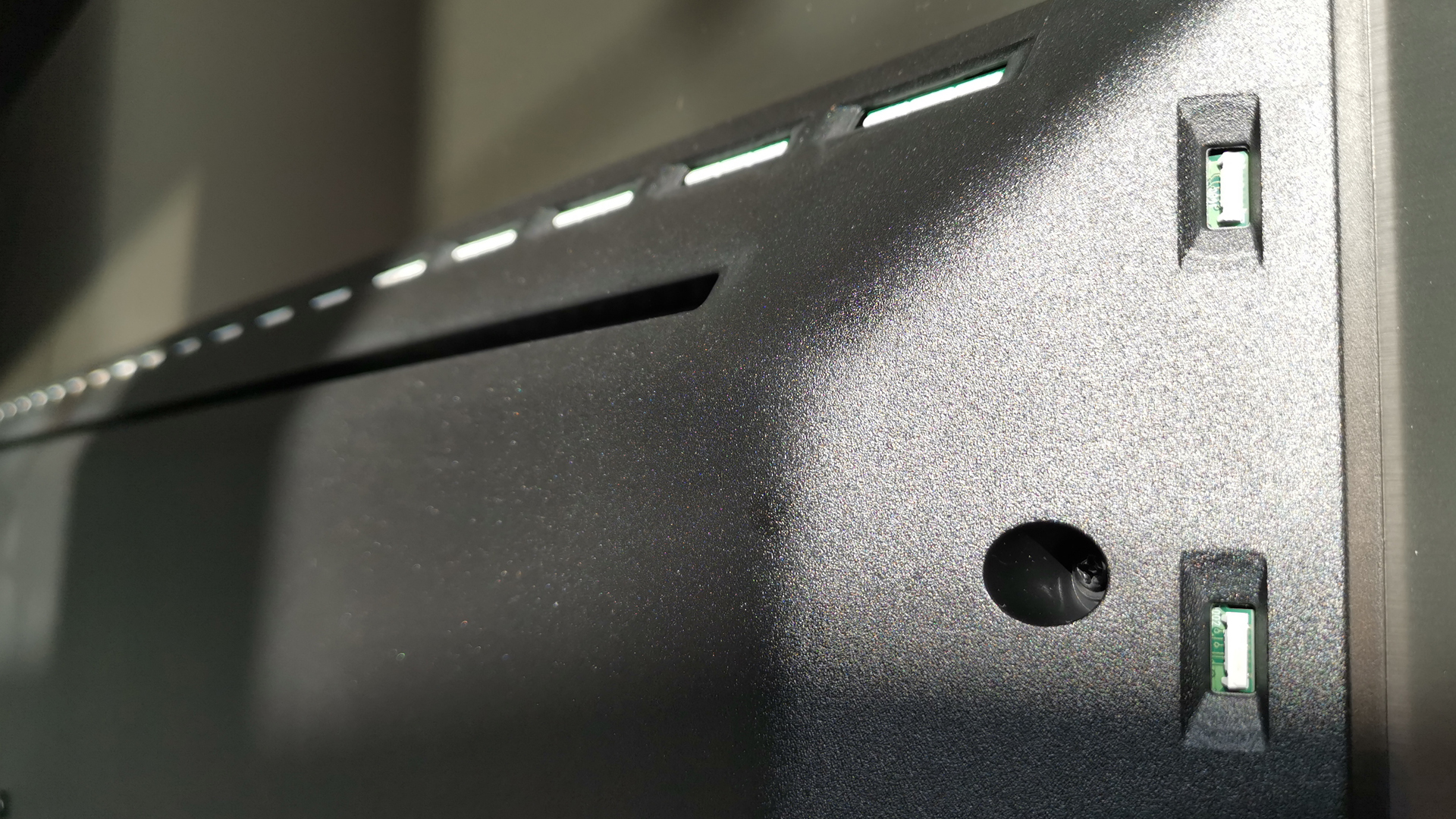
Smart TV (Android Pie)
Philips favoured smart OS for its OLED screens is Android, here in its latest Pie build.
There’s no Freeview Play terrestrial tuner, instead UK consumers get offered standard Freeview HD. There’s also the option of dual satellite tuners.
The Android OS hasn’t exactly enamoured itself to users, thanks to a complicated interface and generally high level of operational clunk, but here it’s finally looking pretty decent. The tiered home page is relatively intuitive and there’s some powerful functionality under the hood, with support for Chromecast and Google Assistant built-in. Philips own interface, cocooned inside, is however still a bewildering maze of text menus, and there’s a lot of navigation involved.
The streaming app line-up also includes most of the important apps you’re likely to search for, such as BBC iPlayer, Netflix, Amazon Prime Video and YouTube.
Smart TL;DR: It may be inelegant, but the latest Android smart OS is powerful and versatile. You’ll need a third party device to cover off mainstream catch-up TV services though.
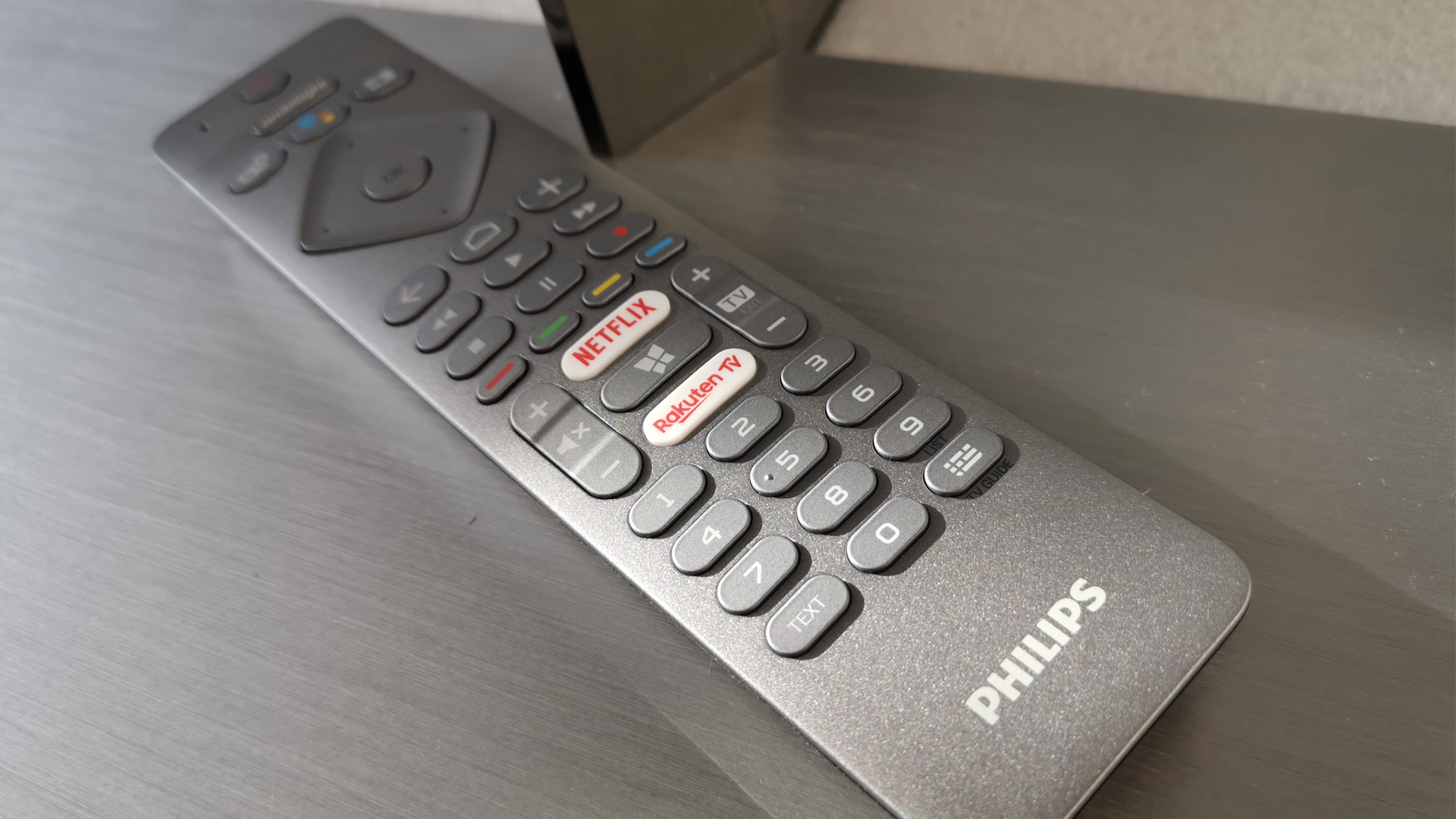
HD/SDR Performance
From the moment you turn it on, the panel quality of the OLED984 should impress. Image handling comes via a third-gen, dual-chip iteration of Philips highly regarded P5 image processor, and the results are immediately apparent.
Comparable to the performance offered by Philips’ OLED804/854 series, this model can be considered outstanding with both regular HD and native 4K material.
New tricks include skin tone optimisation and highlight optimisation. There’s also advanced filtering to remove jagged edges, giving smoother image definition – and changes to pixel design that, according to Philips, reduce the chance of image burn-in.
The Philips P5 processor does a superb job with regular HD content, boosting perceived resolution, and lending a bright HDR style grade to SDR content. We suspect casual observers might not even be able to tell the difference in some circumstances, since the upscaled 1080p detail doesn’t look forced or unnatural, and aptly handles what could have been grainy images.
One handy weapon in the OLED984’s arsenal is Perfect Natural Reality, which gives SDR content a convincing HDR-like sheen. Consider Watchmen (Sky Atlantic HD), which appears beautifully textured, with plenty of interdimensional detail.
In true Philips fashion, colours are rich and vibrant – whether you’re watching them on the screen or as they’re blasted onto the wall behind it. Banding is also minimised thanks to some clever bit depth processing that handles colours aptly..
HD/SDR Performance TL;DR: This latest iteration of Philips P5 image engine offers some of the best HD/SDR upscaling seen from the brand. It makes full use of the panel’s high brightness, without introducing unwanted artefacts.
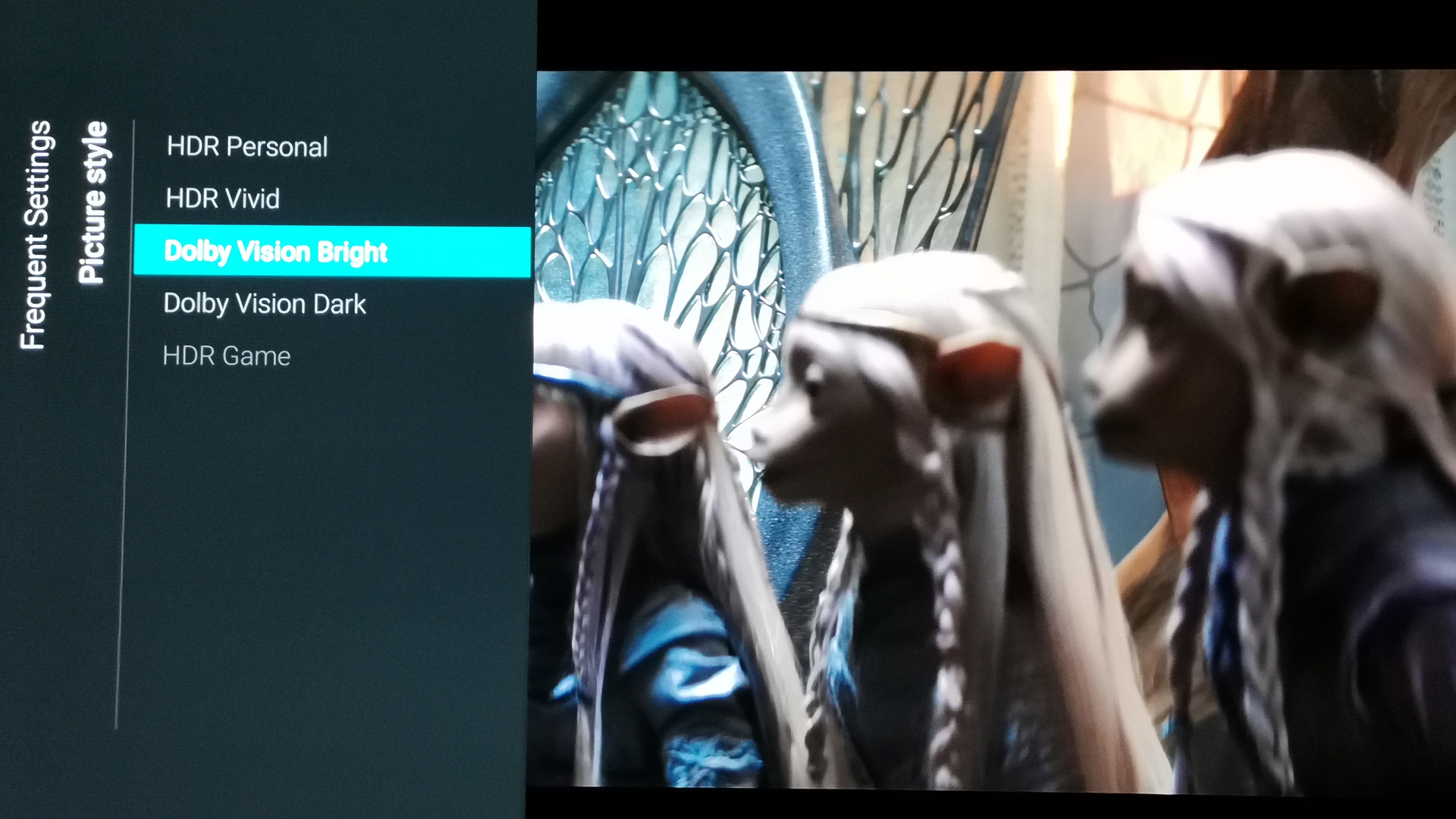
4K/HDR Performance
One key aspect of the OLED984 that will cause AV fans to trill with joy is its Universal HDR compatibility. You don’t have to choose between Dolby Vision or HDR10+, as both rival metadata standards are supported – and you’ll also be able to display the HLG broadcast format and regular HDR10.
The OLED panel, being self-emissive with the ability to turn off pixels entirely, guarantees perfect blacks. But where this set excels is in the hinterland of near-blacks, with excellent shadow detail.
If you’re stumped on what Picture modes to use, we wouldn’t blame you: there are many of them to choose here, often without much variation between them.
You’ll probably struggle to see much of a difference between Standard and Natural, for example (the latter ups the contrast slightly). With HDR fare, image presets change accordingly. Here, HDR Natural is a good viewing choice for most programmes, while the HDR Movie mode switches off most of Philips image processing, resulting in an altogether flatter look. This rather undersells the appeal of the 984. Small wonder Philips has been less than impressed at the idea of a universal Filmmaker mode, as advocated by the UHD Alliance.
HDR peak brightness was measured at 780 nits in HDR Natural viewing mode, using a 5 percent HDR brightness test window. To drive HDR harder, take a look at HDR Vivid, which pushes the same peaks to around 970 nits. This mode looks stunning with common HDR lighting effects, such as sunlight, reflections, sparkles, and the like.
With Dolby Vision content, there’s the option of Dolby Vision Dark and Dolby Vision Bright. The latter would be our recommendation, particularly if you’re watching in a room with ambient light.

The set duly provides a jaw dropping showcase for Netflix’s Dark Crystal: Age of Resistance TV show (in Dolby Vision). With its fantastical sets and striking visual effects, the image on this Philips set borders on the magical.
For the record, the TV measures around 640 nits in HDR Natural mode using a standard 10 percent viewing window, but this is less reflective of how HDR effects tend to be used.
In Game mode, input lag was recorded at a good-enough 33.2ms (1080/60). While there are plenty of sets with lower input lag, we still found the screen was able to handle a lengthy Call of Duty Modern Warfare marathon without too much trouble.
4K/HDR Performance TL;DR: Universal HDR handling (which includes Dolby Vision and HDR10+) helps the OLED984 optimise all flavours of content, and its real world HDR performance is laudable. Detail, texture and colour handling can all be considered top class.
Sound
But perhaps the most standout feature of this five-star television is its audio performance, which for once doesn’t play second fiddle to TV visuals. Bowers & Wilkins has created a sound system that offers superb sonic definition, creating a soundstage far larger and more exciting than you might imagine from an integrated TV audio solution.
To be clear: this isn’t a soundbar for home cinephiles. It’s not Dolby Atmos enabled and won’t replace a true home cinema setup, beyond some DSP processing.
But with its tweeter-on-top design, we get superb vocal clarity, which really helps define the dialogue in action movies. It’s pretty darn good with music too. Audio Presets includes AI, Movie, Music, Game, News, Original and Personal.
HD/SDR TL;DR: It may not be home cinema, but this is arguably the finest integrated stereophonic TV soundbar we’ve ever heard.
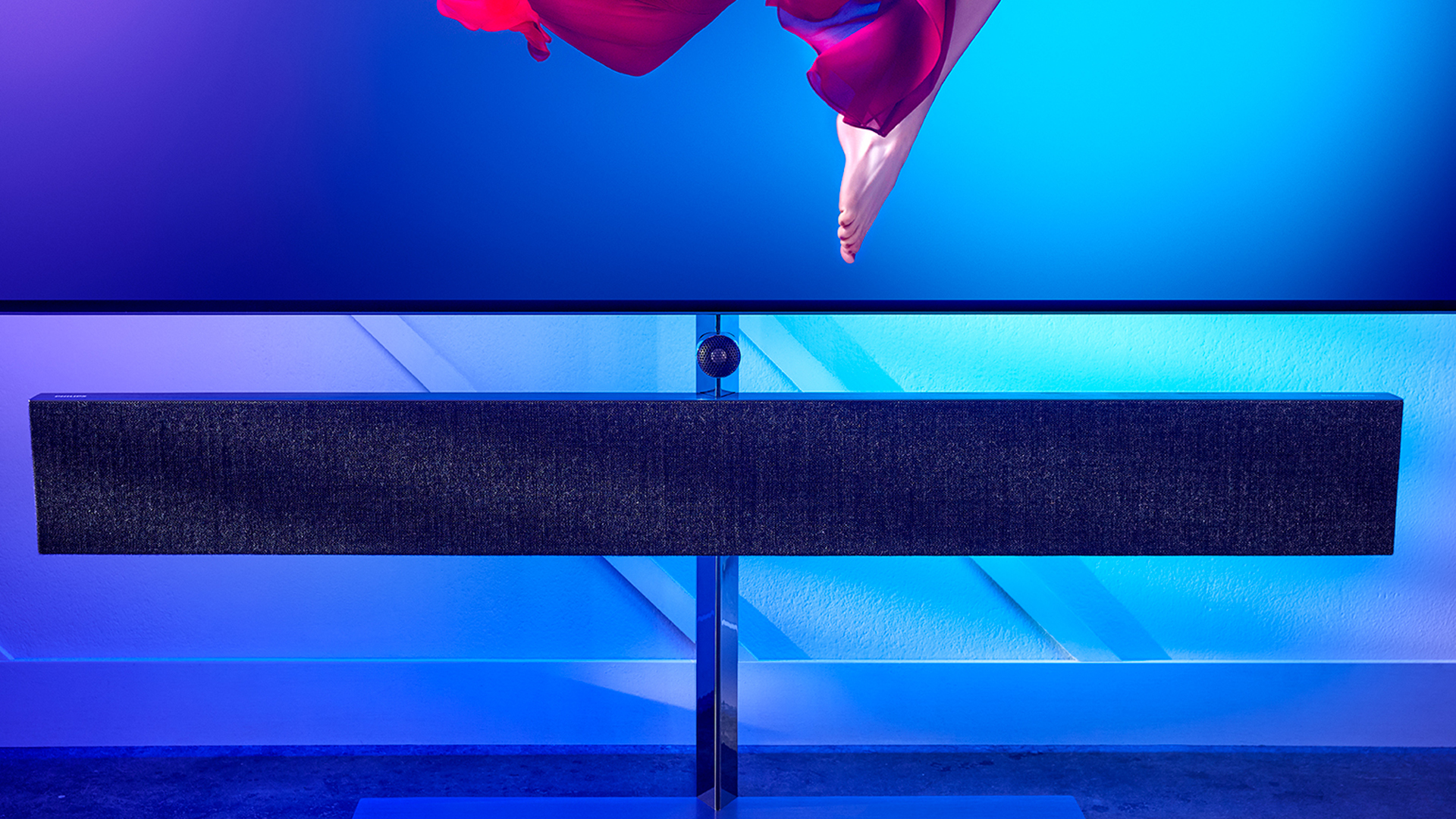
Other screens to consider
If you’re looking for a lifestyle television with above-average sound and vision, the Sony AG9 Master Series deserves shortlisting. This particular model keeps its audio talents hidden, thanks to the brand’s clever Acoustic Surface+ technology, which actually uses transducers to vibrate the OLED panel to produce sound. The end result is remarkably effective. It also offers superb 4K image quality, with sophisticated HD/SDR upscaling.
The LG C9 OLED is no slouch, either. This model boasts fine OLED image quality – if slightly behind the Sony AG9 or Philips OLED984 – has an advanced smart TV platform, ThinQ AI smart interface, plus Google Assistant and Amazon Alexa compatibility. It also sound remarkably good for a screen with a discrete sound system, although it’s far from Hi-Fi grade.
It’s worth noting that neither the Sony AG9 nor LG C9 have the same universal HDR support.
Verdict
The Philips OLED984 is, in many ways, the ultimate high-end lifestyle 4K OLED.
It does exactly what a flagship TV should, setting a high bar for image quality, audio and design, without significant compromises.
The set’s 4K picture performance is superb, with pin sharp images, convincing detail and texture, and lush colour. Perfect Natural Reality proves a superior HDR upscaler, which allows you to enjoy the inherent vibrancy and contrast offered by the panel, even with SDR content.
Bower’s stereophonic soundbar may not appeal to those after a more cinematic audio solution, but if immersive Atmos audio isn’t a key consideration, then 4K UHD TVs don’t come more enticing.
- Best Black Friday TV deals: what are the biggest discounts?
Steve has been writing about AV and home cinema since the dawn of time, or more accurately, since the glory days of VHS and Betamax. He has strong opinions on the latest TV technology, Hi-Fi and Blu-ray/media players, and likes nothing better than to crank up his ludicrously powerful home theatre system to binge-watch TV shows.
